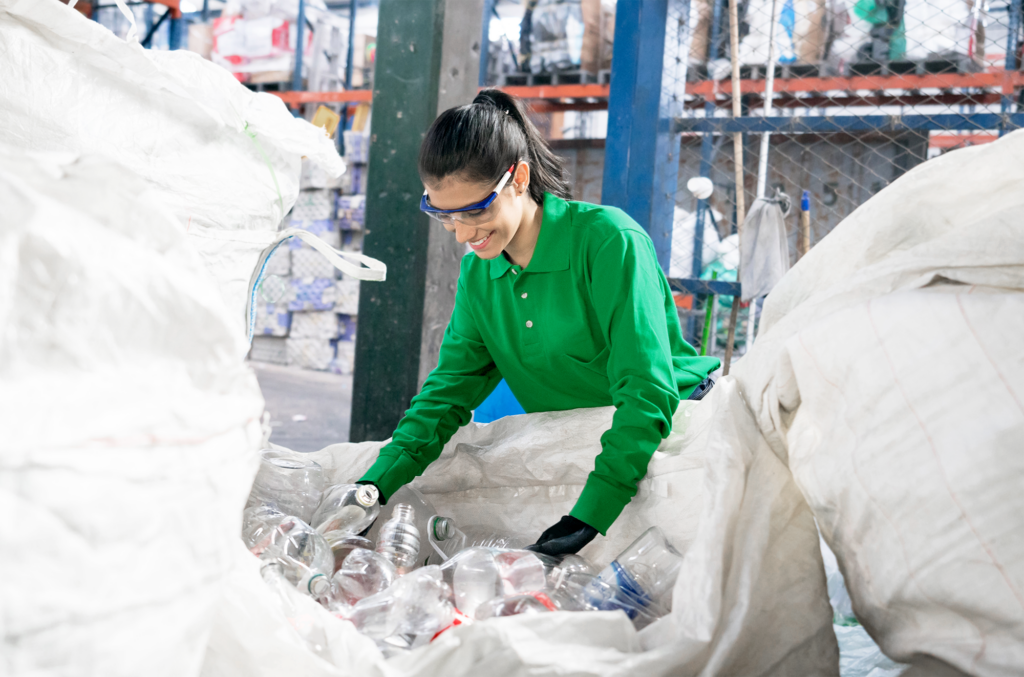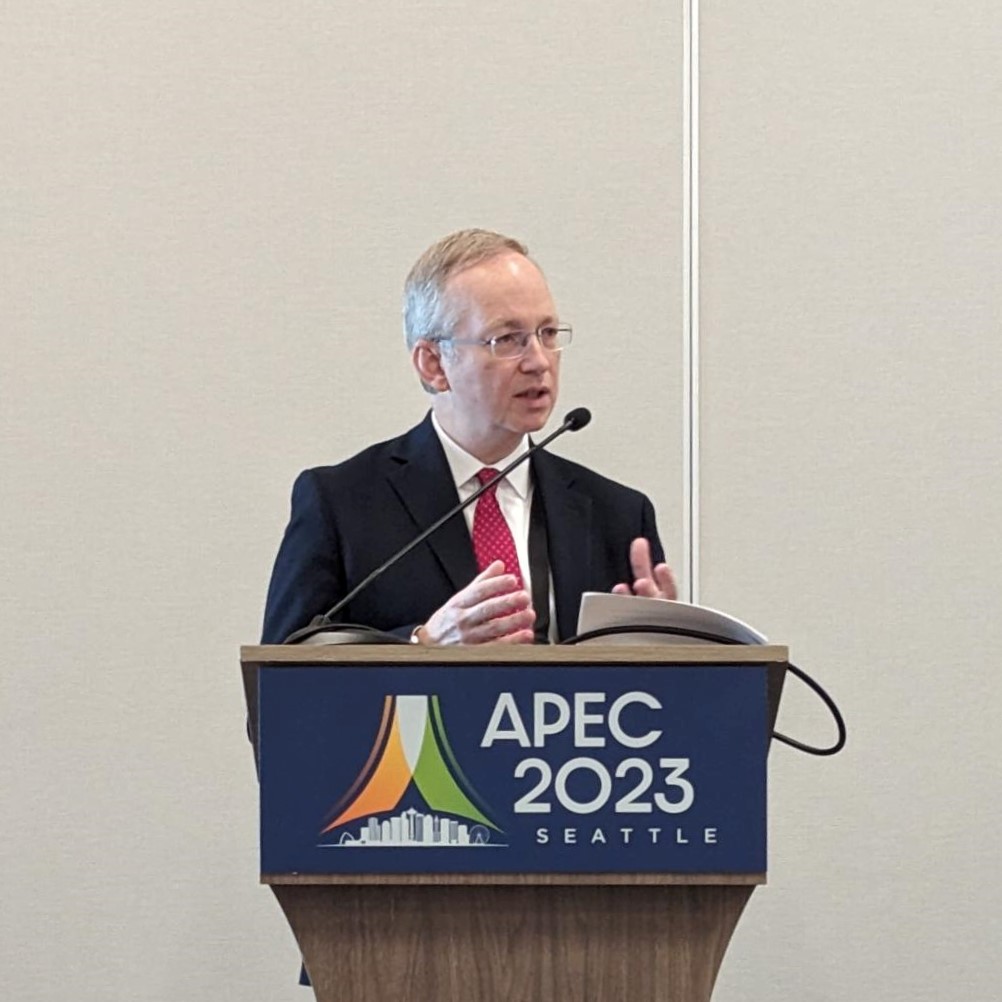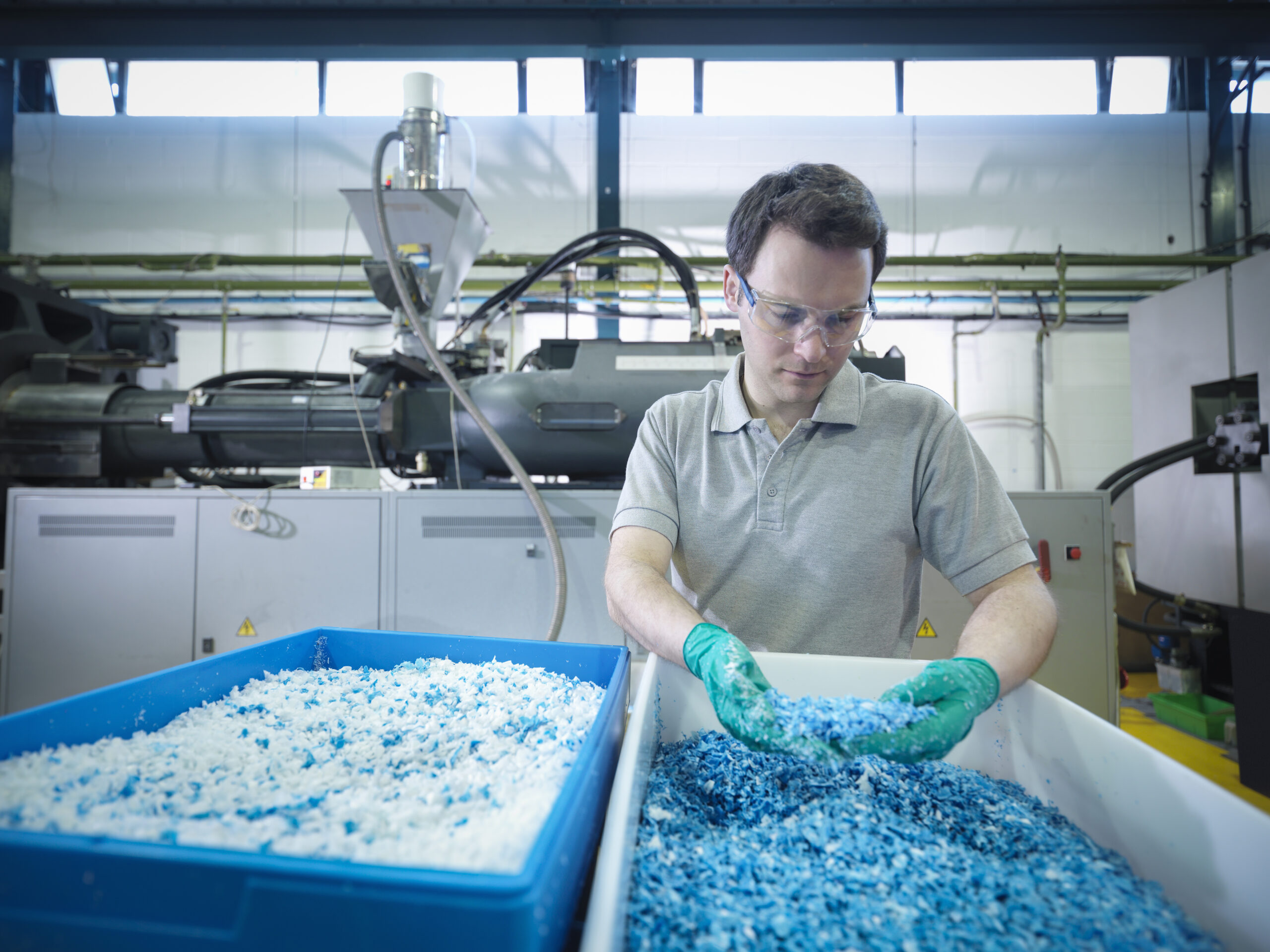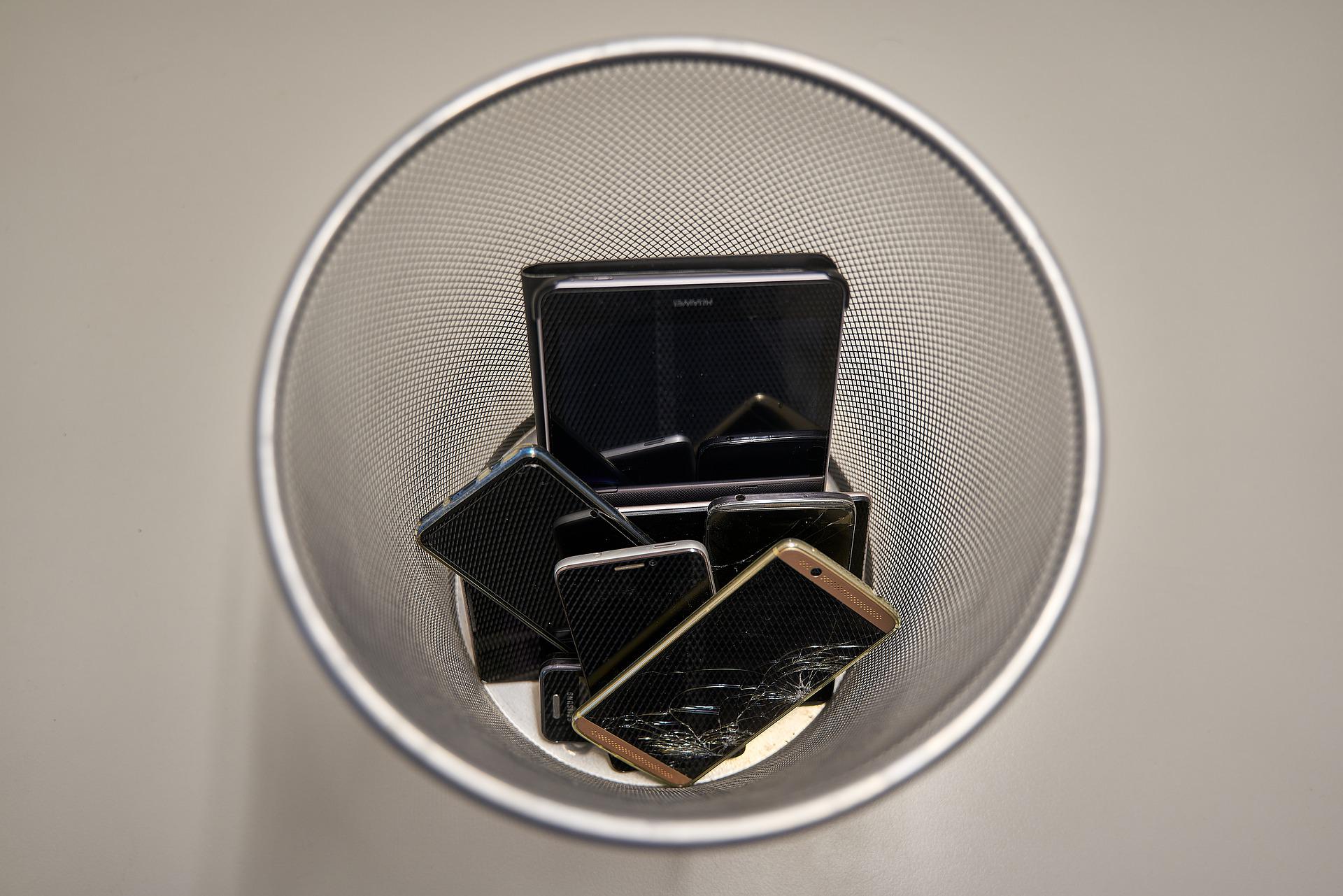
Sustainability & Circularity
Increasing global resource use is creating new safety concerns. Understand your risks and how standards are helping to make the world safer and more sustainable for you.
What is the Risk to You?
As resource use outpaces renewal, product recycling and disposal have become a significant area of public concern. Learn more about resource use and renewal risks and how you can improve your safety.
By the Numbers
Hover over each stat below to learn more.
Keep reading to explore examples of the power of prevention from people just like you.
Safety Science in Action
A safety standard is like an instruction manual put together by experts to guide the testing of products, services, and systems to make them safer for you.
Sustainability and circularity standards help ensure resources are used efficiently while protecting worker safety and environmental health.
Circular Economy Standards
Our standard, UL 3600, Measuring and Reporting Circular Economy Aspects of Products, Sites and Organizations provides requirements that cover the methods and metrics for measuring aspects of a company’s sustainability efforts, specifically those related to circular economy, such as eliminating waste, reusing materials, and regenerating natural resources. In order to help improve consumer confidence and trust in a company’s sustainability claims, UL 3600 measures sustainability at the site, product, and company level, and also provides a report that allows a company to share its performance levels for these and other areas.

Sustainability & Circularity Resources
We are committed to improving the safety of everyone vulnerable to risks related to resource use and renewal — and it starts with education. Explore these resources to equip yourself with the knowledge you need to live more safely.
-

We Can Protect and Progress: Discussing UL Standards at the APEC Workshop on Battery Energy Storage
On August 4-5, 2023, UL Standards & Engagement Executive Director Dr. David Steel and Vice President of Standards Development Dr.…
-

Establishing Safe Parameters for Sustainable Polymeric Materials for Electrical Equipment
Today’s circular economy relies on sustainable manufacturing to reduce the demand for new materials, which can impact the environment with…
Frequently Asked Questions
Sustainability and circularity standards establish requirements for safely recovering and reprocessing materials. They guide practices for collecting, sorting, processing, and reintegrating recovered resources while maintaining strict safety protocols throughout the renewal cycle. Continue reading for answers to common questions about resource use and renewal safety.

most commonly asked
What are sustainability standards?
Sustainability standards define the guidelines for the safe recovery and reprocessing of materials. They outline best practices for collecting, sorting, processing, and reintegrating recovered resources, ensuring strict safety protocols are followed throughout the entire resource renewal process.
How do circular economy standards work?
Our standard, UL 3600, is the first standard to help companies quantify circularity consistently and communicate sustainability efforts to consumers transparently. It measures sustainability at the site, product, and company level, and also provides a report that allows a company to share the performance of its material flow – its ability to eliminate waste and keep goods in productive use over time. The score helps demonstrate the overall efficacy of the company’s sustainability efforts, including the use of recycled content and bio-based content, recyclability of products, waste minimization, and landfill diversion.
How do I know if a product uses resources responsibly?
Look for products that conform to UL standards and verify sustainable material use and safe manufacturing practices. Standards like UL 3600 help companies measure and report their resource use transparently.
What happens to materials I recycle?
When materials are properly recycled, they enter a recovery system in which they are sorted, processed, and valuable materials are extracted for reuse. However, the success of this system depends on proper disposal. Currently, only about 20% of e-waste follows appropriate recycling paths. For batteries, electronics, and other complex items, sustainability standards like UL 110 and UL 1974 can help guide the processes to ensure safe material recovery and reuse.
Are recycled materials as safe as new ones?
Yes, when processed according to proper standards. UL safety standards ensure recycled materials meet the same safety requirements as virgin materials. This includes testing for contaminants, verifying material integrity, and ensuring proper processing methods.
Spotlight
Sustainability & Circularity Safety Standards
Safety standards have the power to make the world safer, more secure, and more sustainable. Explore UL standards that improve the safety of resource use and renewal.
Our catalog includes more than 1,700 safety standards and documents that are regularly updated and added to. Click below to keep exploring how our standards are making the world safer for you.
Get Involved
The best standards are made possible by diverse voices and deep collaboration. Be part of the process by helping inform the next generation of standards.

Technical Committees
Each TC is a diverse group of experts representing a broad range of perspectives and interests, including consumers, manufacturers, regulators, supply chain professionals, and more.
As a TC member, you will review proposals for new or revised standards and work collaboratively to achieve consensus through balloting in our transparent process.

Stakeholders
Stakeholders can submit, review, and comment on proposals for new standards or revisions to existing standards. While these individuals cannot vote, the TC considers their input during the standards voting process. Since standards affect everyone, all are welcome to participate as stakeholders. Register online through our Collaborative Standards Development System, CSDS.
